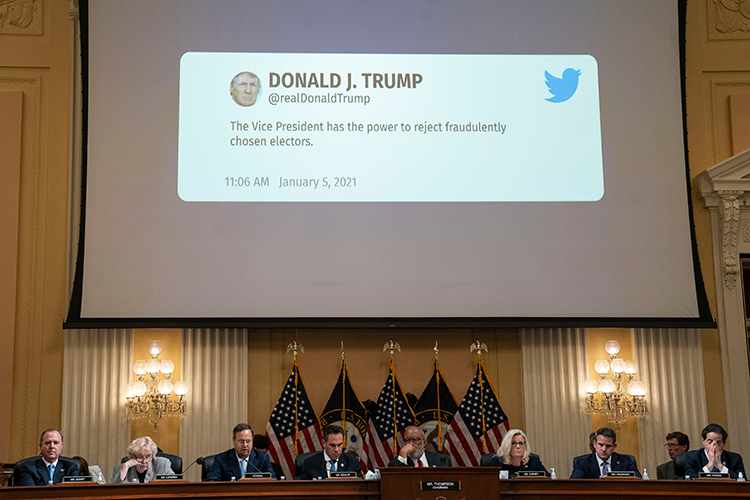[ad_1]
Constitutional Law
Jan. 6 committee’s subpoena of Trump is ‘on a tight time frame’

The U.S. House of Representatives committee investigating the Jan. 6, 2021, riot examines a tweet sent out by former President Donald Trump in the run-up to his rally. (Photo by Michael Robinson Chavez/The Washington Post via Getty Images)
Former President Donald Trump is likely to resist a subpoena announced Thursday by the House select committee investigating the Jan. 6, 2021, Capitol riot.
The committee voted 9-0 to subpoena Trump for documents and testimony, report Reuters, the New York Times, the Washington Post and NBC.
NBC reports that the Jan. 6 committee “is on a tight time frame” because “the subpoena will expire at the end of this congressional term, and Trump is likely to challenge it.”
Author and legal writer Elie Mystal tweeted that there is “literally no chance” that Trump would honor the subpoena and appear before the committee.
University of California at Los Angeles law professor Rick Hasen suggests the committee likely knows that too. He says in a tweet that the committee may be issuing the subpoena so it could assert that Trump resisted a chance to provide information. That would “defang arguments” that Trump didn’t have a chance to mount a defense.
If Trump doesn’t comply with the subpoena, the full House of Representatives would have to vote on whether to make a referral to the U.S. Justice Department, according to the Reuters story. Failing to comply with a subpoena is a misdemeanor, punishable by up to a year in prison.
Several sitting presidents have voluntarily testified before Congress, NBC reports, citing information from the U.S. Senate. In addition, Congress has subpoenaed several former presidents, with mixed results, according to the Just Security blog.
[ad_2]




